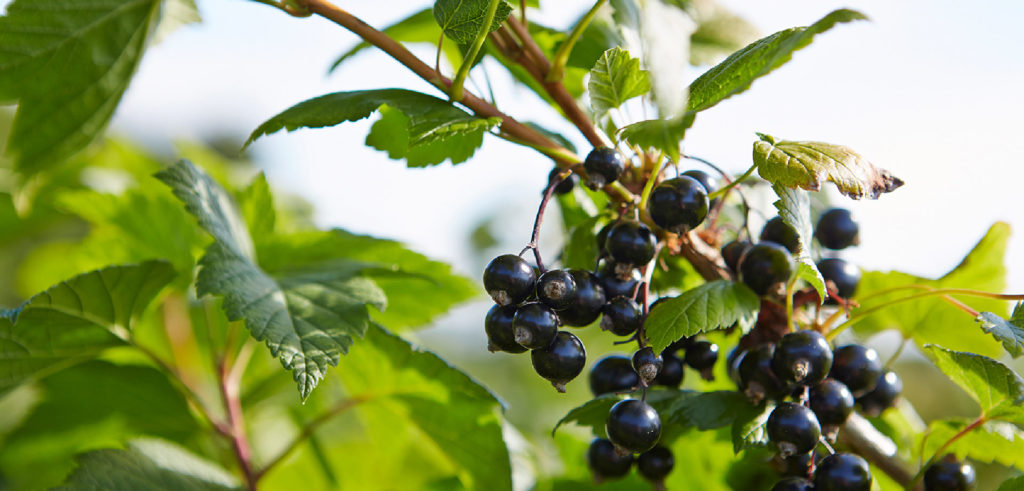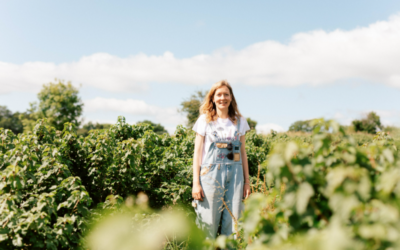Why do blackcurrants grow so well in the UK?

Last year, our growers harvested a whopping 13,000 tonnes of blackcurrants, mostly to make the blackcurrant cordial all know and love, Ribena! However, have you ever wondered why blackcurrants grow so well in the United Kingdom? Prepaps sometimes unfavourable for most, blackcurrants love the Great British Weather! Continue reading to find out why…
We may complain about the British climate, but our Great British superfruit certainly isn’t! With cold winters and warm summers, the UK has the ideal conditions to grow Blackcurrants. Blackcurrants have grown well in the UK for over 500 years, and many Blackcurrant Foundation growers have grown blackcurrants for generations, managing 2,000 hectares of blackcurrant fields across the British Isles. This tiny berry is part of British History, mainly due to the UK having perfect growing conditions for these purple powerhouses.
During the winter, cold spells ensure that blackcurrants flower at the right time for optimum pollination. They require approximately 2,000 cold hours (below 7c) before they start to grow buds in the spring. This means it reduces the risk of frost damage to new buds and ensures that buds open rapidly in the spring. This also means they flower when there are lots of essential pollinators around – mainly bees but also butterflies, moths and other insects too. Therefore, a frosty winter followed by rising temperatures in spring and summer is essential for a healthy crop of blackcurrants come harvest in July-August when the berries are at their sweetest.
However, with rising temperatures during the winter, blackcurrants have a shorter and milder ‘chill time’ which will affect the harvest. The James Hutton Institute has discovered that milder winters may cause blackcurrant crops to flower later in the year, produce less fruit, and over repeated years, have a reduced plant lifespan.
In light of this, a new climate-resistant variety has been developed- ‘Ben Lawes’ alongside Ribena’s brand owner, Lucozade Ribena Suntory and the James Hutton Institute (the leading agricultural research centre for soft fruits). This new variety has taken 20 years to develop and last year (2020) was the first successful harvest! We’re thrilled that our dedication to keep the Great British Blackcurrant thriving in our ever-changing climate has paid off. The development of this new blackcurrant variety means we will be able to protect the future of the crop and help secure UK blackcurrant growers’ livelihoods.
YOU MAY ALSO WANT TO READ
How to Celebrate Easter with Blackcurrants
Easter, and all the fun that comes with it, is just around the corner - think spring chicks, egg hunts, fields full of bouncy lambs, daffodils and, of course, fabulous feasts cooked on the barbecue whether the sun is shining or not! From delicious seasonal bakes to...
A Year As A Blackcurrant Grower
Looking to grow your own blackcurrants? If so, we’ve broken your blackcurrant-growing journey down into three simple steps and shared our top tips to see you from one start of the year to another… Planting Blackcurrant plants are typically sold as two-year-old bushes,...
A Year in Blackcurrant Recipes
YOU MAY ALSO WANT TO READ Every day’s a great day to enjoy blackcurrants, but we know the kind of dishes that will really hit the spot are those that tie into the seasons. From energy kicks to sweet treats, we’ve rounded up 12 of our blackcurrant recipes to...




